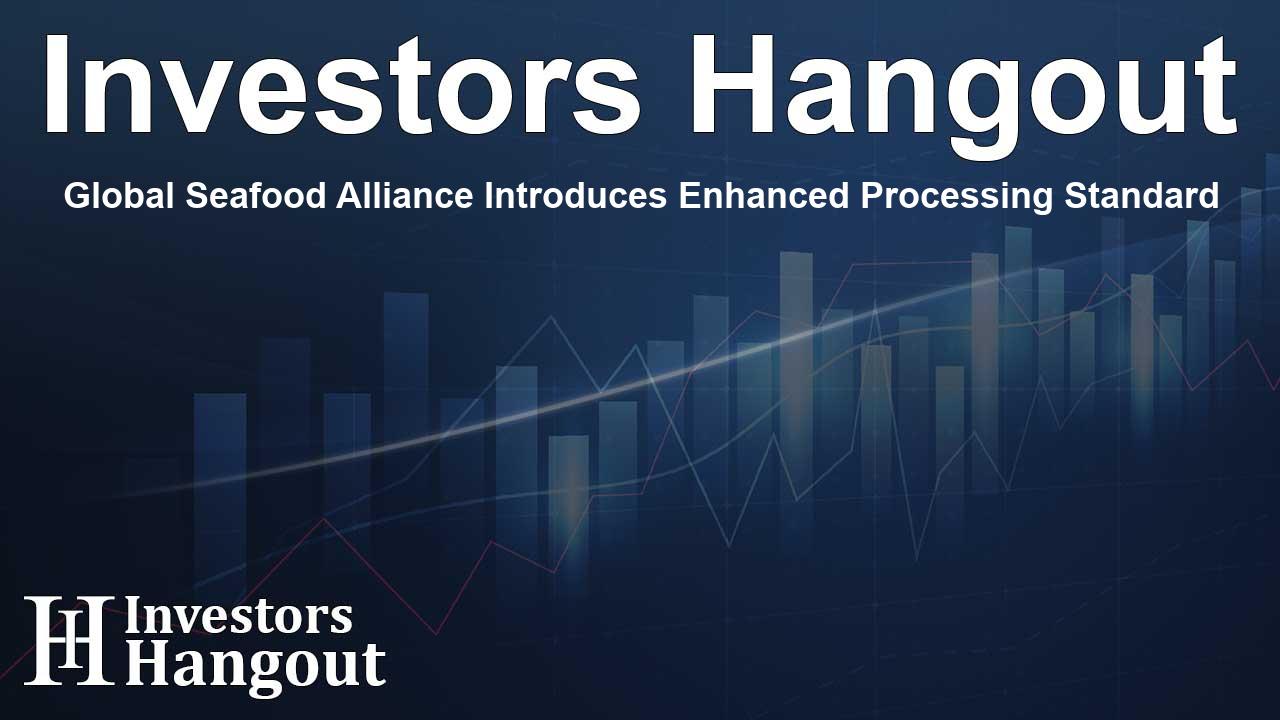Global Seafood Alliance Introduces Enhanced Processing Standard

Global Seafood Alliance Unveils New Seafood Processing Standard
Global Seafood Alliance (GSA) is excited to announce the launch of the Seafood Processing Standard (SPS) version 6.0. This updated version is designed to elevate food safety and processing efficiency for seafood processors worldwide.
Key Features of SPS 6.0
The redesigned standard introduces a modular framework specifically aimed at meeting essential food safety requirements. This comprehensive approach caters to both farm-raised and wild-caught seafood, ensuring that processing facilities can utilize ten distinct modules tailored for their specific operations.
Modular Framework Benefits
The SPS 6.0 framework is structured to streamline audit processes and provide strengthened assurances to consumers. Features include enhanced data collection and reporting technologies that are integral to the certification process.
Detailed Overview of Modules
Each of the ten modules addresses unique aspects of seafood processing:
- SPS 6.0 Core: This foundational module complies with Global Food Safety Initiative (GFSI) standards.
- Animal Welfare: For facilities handling live seafood and slaughter processes.
- Effluent Discharge: For wild seafood processors discharging to natural water bodies.
- Enhanced Social: Focuses on social responsibility audits meeting Sustainable Supply Chain Initiative (SSCI) criteria.
- Finished Product Testing: For high-risk facilities requiring thorough product testing.
- Low Acid Canned Foods: Covers thermal processing for low-acid canned products.
- Outsourcing: Addresses the management of outsourced activities within facilities.
- Product Identity Preservation: For entities claiming adherence to Best Aquaculture Practices (BAP).
- Ready to Eat: For facilities producing ready-to-eat products.
- Remote Wild-Caught Environmental: Tailored for wild processors operating in remote areas.
New Audit Process and Webinar
GSA plans to conduct an informative webinar to introduce the new features of SPS 6.0, detailing its audit and reporting processes. This session will also include an interactive Q&A to address any questions from participants.
Implementation Timeline
GSA is set to begin accepting applications for SPS 6.0 in mid-2025, with a complete transition from the previous version planned for late in the year. Interested seafood processors are encouraged to connect with the GSA team for more information on the new standard.
Frequently Asked Questions
What is the Seafood Processing Standard (SPS)?
The SPS is a global certification standard aimed at ensuring food safety and sustainable practices in seafood processing.
What are the key benefits of SPS 6.0?
SPS 6.0 provides enhanced food safety measures, improved audit efficiencies, and a comprehensive certification framework.
When will the new standard be implemented?
Applications for SPS 6.0 will be accepted starting in mid-2025.
Are there educational resources available for SPS 6.0?
Yes, GSA will host webinars to educate stakeholders about the new standard.
How can facilities apply for SPS 6.0 certification?
Facilities can reach out to the GSA team for application details and further guidance on moving forward with SPS 6.0.
About Investors Hangout
Investors Hangout is a leading online stock forum for financial discussion and learning, offering a wide range of free tools and resources. It draws in traders of all levels, who exchange market knowledge, investigate trading tactics, and keep an eye on industry developments in real time. Featuring financial articles, stock message boards, quotes, charts, company profiles, and live news updates. Through cooperative learning and a wealth of informational resources, it helps users from novices creating their first portfolios to experts honing their techniques. Join Investors Hangout today: https://investorshangout.com/
Disclaimer: The content of this article is solely for general informational purposes only; it does not represent legal, financial, or investment advice. Investors Hangout does not offer financial advice; the author is not a licensed financial advisor. Consult a qualified advisor before making any financial or investment decisions based on this article. The author's interpretation of publicly available data shapes the opinions presented here; as a result, they should not be taken as advice to purchase, sell, or hold any securities mentioned or any other investments. The author does not guarantee the accuracy, completeness, or timeliness of any material, providing it "as is." Information and market conditions may change; past performance is not indicative of future outcomes. If any of the material offered here is inaccurate, please contact us for corrections.